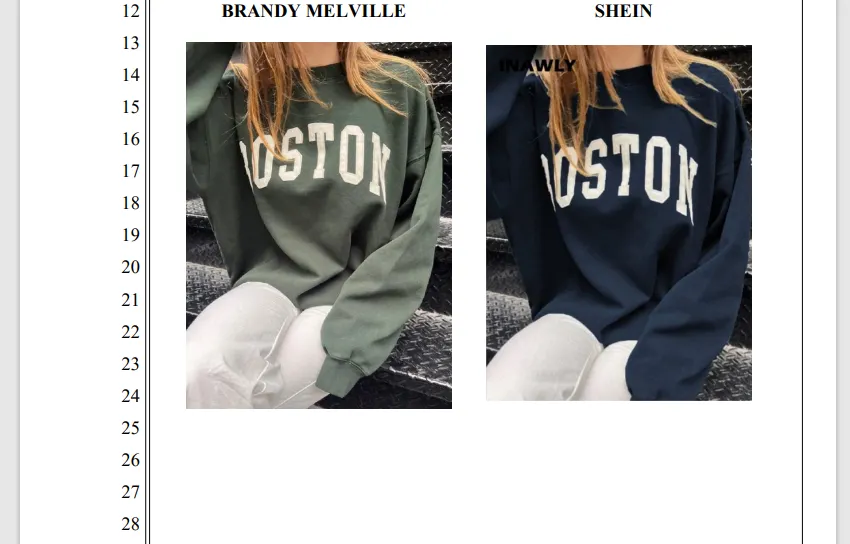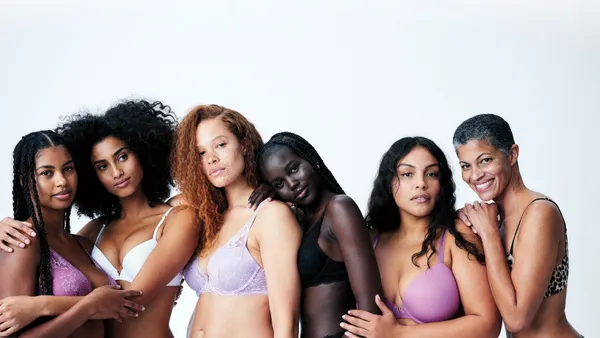Dive Brief:
- Brandy Melville holding company Bastiat USA has filed a lawsuit against Shein for copyright infringement, unfair competition and false designation of origin, according to court filings last week.
- Shein is accused of copying multiple Brandy Melville product designs and posting them for sale using photos of the Brandy Melville products. The complaint includes side-by-side comparisons of Brandy Melville images next to nearly identical images allegedly seen on Shein’s website.
- Brandy Melville’s lawyers call this a bait-and-switch, with Shein customers placing an order based on a Brandy Melville photograph and instead receiving “a cheaper, lower quality Shein knockoff.”
Dive Insight:
Shein has faced copyright infringement cases from established brands and independent artists alike. However, Brandy Melville’s lawsuit against Shein is unique in that its focus includes both copyrighted designs and copyrighted photographs.
The complaint was filed June 23 in the U.S. District Court of the Central District of California. Attorneys for Brandy Melville are seeking a jury trial.
Products listed in the complaint include sweatshirts, shorts and shirts. Brandy Melville owns the copyright for the images included in the complaint.

Attorneys for Brandy Melville say that Shein’s ability to use data to determine trends and immediately offer them to its consumer base makes intellectual property theft “the cost of doing business” for Shein.
“What Shein really means by ‘data-driven approach’ and providing ‘offerings that resonate immediately’ is that it finds popular designs from popular designers and slavishly copies them, without regard to minor impediments such as intellectual property laws,” the filing stated.
Brandy Melville further argued that this instance exhibits the extent Shein is willing to go “to trade off the goodwill of an especially popular and authentic brand.”
A Shein spokesperson didn’t immediately respond to Fashion Dive’s request for comment.
Founded in the 1980s, Brandy Melville is a fast fashion company that launched in the U.S. in 2009 and was an early adopter of influencer marketing. It targets women and girls ages 15 to 25, and in the Shein complaint, it said it has the same customer base as Shein.
Brandy Melville has also faced a copyright infringement lawsuit from a fast fashion competitor.
In 2016, Forever 21 accused Brandy Melville of copyright infringement. The companies settled the case the following year.
Brandy Melville’s practices have recently come into the public spotlight following the HBO documentary “Brandy Hellville & The Cult of Fast Fashion,” released last year, which documented racial discrimination and sexual harassment in its stores, among other issues.











